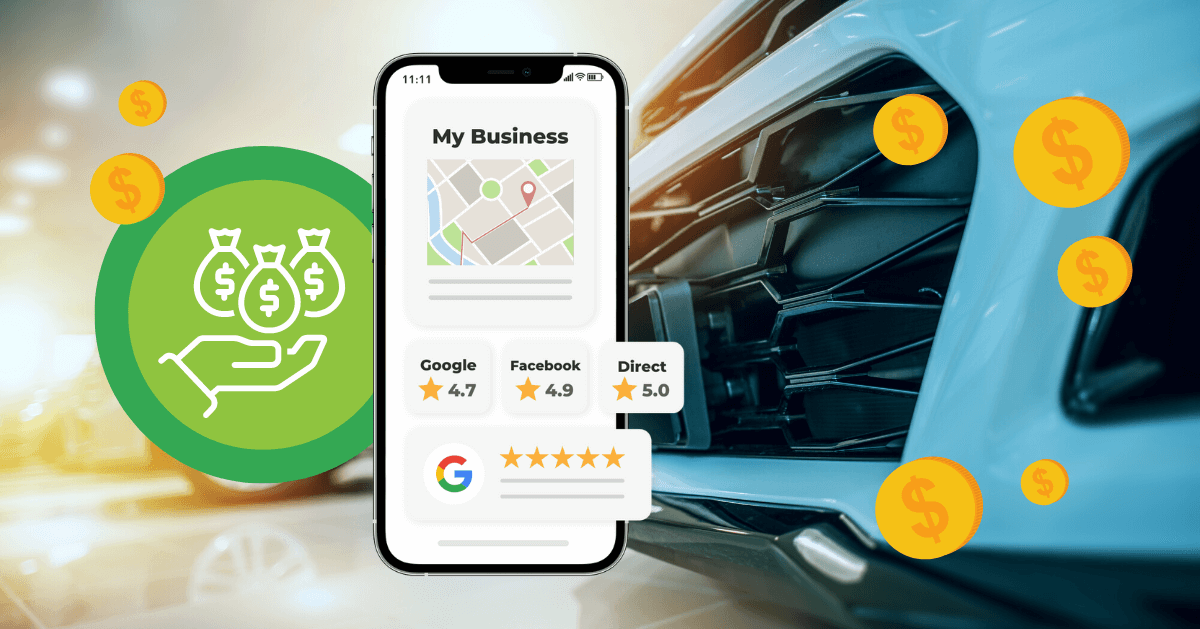In today's challenging landscape, the auto industry faces many challenges that demand creative approaches to marketing. Building trust and meaningful relationships with prospective customers can make all the difference in securing sales and fostering brand loyalty. Automotive marketing, when executed thoughtfully, becomes a powerful tool that not only showcases products but also narrates a story that connects with consumers. By focusing on openness, genuineness, and customer involvement, businesses can strengthen their connections with their audience.
As consumers more and more seek out brands that align with their principles and lifestyles, the significance of effective automotive marketing cannot be overstated. It is not just about selling a vehicle; it is about establishing an emotional bond that builds trust and confidence. Through focused messaging and planned outreach, businesses can convey their commitment to quality and customer satisfaction, ultimately driving success in a changing marketplace.
Understanding Confidence in Car Advertising
Reliability is a foundation of any prosperous business partnership, notably in the car industry. Consumers are often making substantial outlays when purchasing vehicles, and they need to be confident in their choices. This security is established through clarity, truthfulness, and consistency in marketing materials. An efficient automotive advertising strategy fulfills these demands by providing transparent details about products, pricing, and consumer assistance, that helps to foster trust between the business and the consumer.
In the current digital environment, buyers have access to extensive amounts of information and reviews, establishing it crucial for automotive promoters to build trustworthiness. By presenting genuine consumer reviews, case studies, and professional recommendations, companies can form a trustworthy image that appeals with possible consumers. Additionally, utilizing online communities and content marketing allows brands to interact personally with their customers, addressing queries and addressing issues that may come up during the buying journey. This extent of engagement not only fosters confidence but also promotes loyalty.
Furthermore, car promotion should focus on creating a hub around the brand. This can be achieved through participatory forums, events, and customer appreciation programs that make buyers consider valued and heard. When customers believe that a company sincerely is invested about their demands and interactions, their trust increases, resulting to improved customer loyalty and favorable referrals. Ultimately, establishing trust within automotive advertising establishes the foundation for lasting partnerships and sustainable business growth.
Approaches for Building Sustained Relationships
One efficient strategy for developing enduring relationships in automotive marketing is to concentrate on personalized customer engagements. By analyzing insights on customer likes and behaviors, vehicle businesses can personalize their outreach and services to meet individual desires. This not just enhance customer satisfaction but also fosters a feeling dedication. When customers feel valued and acknowledged, they are more likely to maintain their association with a brand and recommend it to others.
Another essential approach is to connect with clients through story-driven media. Car marketing can profit immensely from sharing true client testimonials or testimonials that showcase unique stories with products or services. By illustrating the emotional journey of clients, businesses create a connection that transcends mere exchanges. This emotional approach not only does this humanizes the brand but also deepens the connection between the client and the business, making the company more relatable.
Finally, creating a solid after-sales support system is crucial in vehicle marketing. Clients often seek reassurance after making a significant purchase, so providing steady aftercare correspondence can strengthen trust. Whether through focused customer service lines, educational updates, or reward systems, continued assistance shows clients their significance to the business. This commitment to customer care can convert a single buyer into a perennial advocate, solidifying a enduring relationship that enhances both parties.
Evaluating Success in Automotive Marketing Campaigns
Evaluating the effectiveness of car promotional efforts is crucial for comprehending their effectiveness and enhancing future approaches. One key metric is ROI, which helps businesses gauge the monetary impact of their marketing efforts. By reviewing the earnings generated in relation to the investments incurred during promotional efforts, car businesses can determine which campaigns are increasing sales and which may need adjustments. Observing this measurement consistently allows for data-driven decisions that can boost overall financial performance.
Another critical aspect of measuring effectiveness is client engagement. This can be assessed through multiple channels, including online engagement interactions, website traffic, and email response rates. Achievement can be shown by higher interaction with material, increased numbers of requests about cars, or expanding subscriptions to mailing lists. By monitoring these engagement metrics, automotive businesses can more accurately comprehend their target audience's needs and preferences, enabling more customized marketing efforts that encourage stronger client relationships.
In conclusion, brand image plays a crucial role in the car industry. Questionnaires and response tools can provide clarity into how consumers view your brand compared to rivals. Strong consumer satisfaction scores and favorable reviews indicate effective promotional activities and can significantly affect future sales. By proactively monitoring and assessing brand perception, car advertisers can also foster trust but also strengthen their relationships with consumers, ultimately securing continuous business development.

